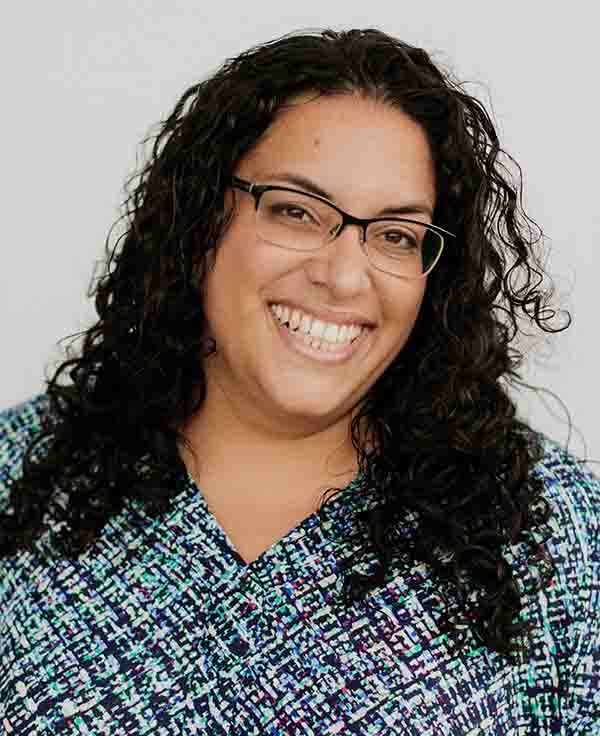Today we release Unrealized Impact 2.0: The Hard Truth about Where We Are and Ways to Move Forward. This marks the culmination of a year and a half of work, all fueled by a mix of love and hate and informed by a lifetime of experiences.
Hate. We hate that this kind of report is necessary. We hate that there is a lack of aggregated data on staff experiences around diversity, inclusion, and equity in the education sector — in and of itself a statement of low prioritization. We hate that in the face of this dearth of central data, people with historically marginalized identities often feel forced to share their own personal traumas as pedagogical tools to agitate toward progress and change, and when we do, we are often met with skepticism or outright denial.
Xiomara: One painful example was in a senior leadership retreat where I (the only Brown and only queer person on the senior leadership team) attempted to educate my straight white colleagues on how white supremacy-based, heteronormative culture was showing up in our strategic planning process and outcomes. While the day started out with us sitting in a circle around a board-room style table, by an hour in, it became what I often refer to as a “Xiomara panel,” which really felt more like a painful interrogation. Questions were hurled at me in quick succession without being anchored in authentic curiosity, humility, or openness, and therefore all landed as “prove it” or “teach me.” I had consented to leaving my family behind and clearing my schedule to fly into town for a strategic planning retreat among the senior leadership team. Instead, hour after hour, I shared some of the most painful micro- and macro- aggressions I had persisted through to get into and stay in this room and carefully shared countless painful experiences of other Black and Brown staff members in ways that would protect their anonymity and attempt to insulate them from the relational and organizational consequences they feared. I was met with defensiveness, fragility, shame, blame, and most often, “I [white leader working in service of Black and Brown communities] don’t buy it.” I still remember the yellow sweater I was wearing that afternoon when I reached my limit and resorted to “you all are going to have to trust me” as a last and final attempt to lay down a boundary of self-protection. That was less than a year before I left.
Michael: I entered the large urban public school system’s executive team meeting that day believing that everything I brought to the conversation, from my first-gen Latinx background to my Ph.D., would be valued and respected. My team was confident in our findings and methodology as we worked to amplify and center the voices of those experiencing the most pain within the organization. After our presentation, a white man on the leadership team of the organization we were partnering with described us and our rigorous analysis presented in a radically human way as “incompetent.” The leadership team was accustomed to — and therefore expected — a purely quantitative approach with a tightly structured presentation format that revealed data click by click without interpretation or implications. Our approach of triangulating the quantitative and qualitative data landed in a way that pushed against the status quo — and was therefore unwelcome. He described my talented colleagues (who hold all the fancy degrees from all the fancy schools) — along with me — as “incompetent” for pushing the boundaries of what he would describe as “valid” data presented in a “correct” way. Not one of the other executive team members in the room challenged his interpretation. This experience stings and angers me just as much today as it did at that moment.
This regular occurrence of having our own lived experiences invalidated compelled Promise54 to release the original Unrealized Impact report in 2017, which at the time was the most comprehensive study ever conducted on diversity, inclusion, and equity (DEI) in the education sector. The report demonstrated that these painful experiences so often endured by folks with historically marginalized identities in white supremacy culture-based organizations are substantiated by considerable aggregate quantitative evidence. We hate that such a report was necessary: that aggregate quantitative data hadn’t previously been prioritized, collected, and communicated; that the field requires this form of data and accompanying visualizations in written form to acknowledge things that Black and Brown people know to be true from our own experiences and share every day in other equally valid forms like storytelling; and that the challenges exist in the first place.
Love. That said, once the report was released, we were overwhelmed by the number of people who found validation and affirmation in the pages of the report, and who experienced relief and freedom in having the ability to leverage aggregate, anonymous data to drive toward change versus having to relive and expose personal pain and trauma.
Lucerito: In October of 2017, I walked into a hotel ballroom in Orlando, lured by the promise of groundbreaking data on DEI in the education sector from the just-released Unrealized Impact report. This was my introduction to Promise54. I sat and absorbed the data scrolling across the presentation screen, wrapped in a huge mix of emotions.
By that time, I had already come to love data. As a Woman of Color, I experienced it as a “safe” and effective way to have a voice while navigating predominantly white institutions. Learning to use data was like learning a language that the people around me finally paid attention to and understood. It relieved some of the pressure I felt to find the *just right* ways at the *just right* times to lay my own trauma and experiences bare so that they might be taken seriously and understood.
Sitting in that ballroom, seeing my experiences finally translated into this “language,” I felt such a resounding sense of validation, affirmation, and solidarity. I was so excited to finally see such robust data that “proved” what many of us have known to be true our whole lives, and to also know that I wasn’t alone. I thought about how amazing it would be to contribute to this kind of voice, to “translate” more and more of the things people from historically marginalized communities have carried and expressed their whole lives.
Almost exactly four years later, I feel immensely privileged to be sitting on the other side of the table. I am excited for the ways in which this new report can be a source of solidarity, safety, and voice for those that continue to be marginalized, systematically excluded, and decentered. I think about all of the people who can now point to these thousands of data points to share our collective and individual experiences, rather than feel like they have to lay their trauma bare for the *chance* of change. I think about all of the people who can read this report and, like me, see themselves reflected, heard, and affirmed.
This is the part that we love. This overwhelming response encouraged us to continue collecting this data and to produce Unrealized Impact 2.0.
We believe that with the privilege of collecting this large base of national data comes the responsibility to mine for insights, to combine those with our learnings from supporting over 100 organizations a year in this critical work, and to share findings with the field to enable and deepen forward progress in the sector.
The results are sobering. We hope this report provides a powerful call to action for organizations to engage in the work of becoming diverse, inclusive, equitable, and antiracist — as we believe that is a precondition for achieving social justice. And we hope that the report relieves at least some of the pressure that so often is placed on people with historically marginalized identities to begin or sustain this work.
This work belongs to all of us.
LUCERITO ORTIZ
Partner
She/Her/Hers
Contact Lucerito: lucerito@promise54.org
MICHAEL CORRAL
Associate Partner
He/His/Him
Contact Michael: michael@promise54.org
XIOMARA PADAMSEE
Founder & Chief Executive Officer
She/Her/Hers
Contact Xiomara: xiomara@promise54.org



